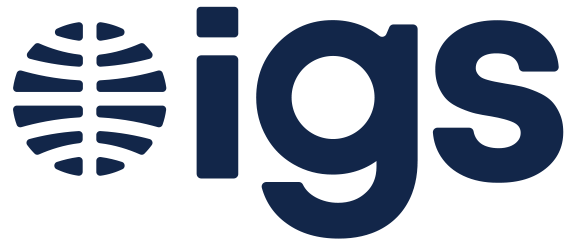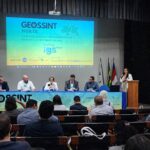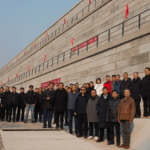Hi Isuri, please tell us a bit about yourself.
Hi! I’m 30, a Geotechnical Engineer at CMW Geosciences, a geotechnical consultancy firm, based in Brisbane, Australia.
Please share your career path to where you are now.
This is my first role as a Geotechnical Engineer in Australia, and it has been an exciting journey. I went to school in Sri Lanka then moved to Thailand to complete my BSc in Civil & Infrastructure Engineering at the Asian Institute of Technology in May 2016.
I returned to Sri Lanka and started working at the National Building Research Organisation (NBRO) in Colombo for seven months. NBRO is the only government institution carrying out geotechnical investigations and engineering solutions to ensure a safer, sustainable and disaster resilient built environment in Sri Lanka, so it was an absolutely great opportunity to work there.
I served as the Project Engineer for the Resettlement Housing Project for landslide-affected victims in Kegalle District. I had the opportunity to work with a great team of engineers, geologists, town planners, architects and a number of government officials, meeting deadlines and targets to provide permanent shelter for families while being compassionate to social requirements and maintaining the quality and standards of construction.
In February 2017, I received a full scholarship for a PhD and moved to Australia to pursue my doctoral degree at Queensland University of Technology, Brisbane. The aim of my research study was to investigate the hydraulic performance of geosynthetic clay liner (GCL) overlaps. This study was conducted in collaboration with Geofabrics Australasia, a market leader in geosynthetics manufacturing and marketing in the Australian industry.
The exposure I received through working with Geofabrics was immense. I got involved in element scale laboratory testing, model scale laboratory testing and numerical modelling to evaluate the performance of GCLs.
A notable milestone in my PhD journey was the opportunity to present my research work at IGS North America’s ‘Geosynthetics 2019’ conference in Houston, USA. I was privileged to meet many industry experts, research leads, and manufacturers in the geosynthetic industry.
I completed my doctoral degree in August 2020 and joined CMW Geosciences. I work with them to explore the applications of geotechnical engineering and gain valuable experience to strengthen my knowledge.
Also, with the guidance of my Industry Supervisor Preston Kendall (Chairman of the IGS Young Members Committee for Asia-Pacific), I joined the IGS as a student member and since then have attended as many seminars, webinars, and workshops as I can!
Tell us a bit more about CMW Geosciences and why you chose to work there.
CMW Geosciences is a consultancy firm providing specialised geotechnical services to mining, construction, and civil engineering industries. The company was founded in 2012 and since then has expanded its services throughout Australia and New Zealand.
I wanted to work for them to arm myself with diverse field experience and to establish myself as a well-rounded geotechnical engineer.
Tell us about your interest in geosynthetics and the reasons for your chosen focus.
I have some background exposure with geosynthetics as my Dad is a geosynthetics importer and marketer in Sri Lanka, catering to infrastructure projects in the country. However, my interest in geosynthetics deepened with my PhD journey, researching GCLs and the vast number of different applications in mining, construction and infrastructure development.
The numerous workshops, seminars, tech talks, and conferences I participated in as a student member of the IGS were eye-openers to explore and understand different geosynthetic products and their applications and the wide variety of products manufactured around the world.
Now, working in CMW, I get the opportunity to get involved in different types of geotechnical investigation projects such as rail construction, road construction, retaining structures, solar farm projects, tailing dams etc. In each of these projects, I experience the different applications of geosynthetics and how they are used in effective geotechnical designs, adding value to my knowledge and experience.
What was your first day at CMW like?
Exciting! I was inducted into the company premises and its systems and registered for a number of training programs required for my field work. My workwear was ordered and I was briefed on how to get ready to fly onto site; they were preparing me to do geotechnical investigations in a rail construction project in North Queensland.
What do your day-to-day tasks involve?
They vary depending on which project I am working on. If I am working on-site, as a field engineer, I would be mainly involved in geotechnical investigation work such as bored pile inspections, bore hole logging, point load testing, in-situ subgrade, pavement and working platform assessments following Pocket Penetrometer (PP) measurements, Shear vane, Dynamic Cone Penetrometer (DCP) Testing and Panda testing, proof rolls, and electrical resistivity testing for ground profiling.
On the days I am in the office, I work on geotechnical interpretation and analysis of field data and writing inspection reports. This year my target is to get involved in some geotechnical design work relating to geosynthetics applications.
What are you most looking forward to in your career?
I am looking forward to improving my knowledge and capacity in geotechnical investigation and design by constantly exploring new opportunities. I intend to achieve steady career growth with reward and recognition while enjoying the work I do as a geotechnical engineer for the sustainable development of the construction industry.
What are your long-term ambitions and goals?
To become a geotechnical engineer of repute and recognition while using my geosynthetics knowledge and exposure to research and develop effective geotechnical designs for the sustainable development of the construction industry.
Did you do work experience or an internship, and would you recommend this?
I did internships for my bachelor’s degree with the International Construction Consortium in Sri Lanka and with the Department of Highways, Thailand. I do recommend internships as I believe it gives you the opportunity to explore and guide yourself in the right direction, for example design work or field work.
I also believe that the field experience you gain will add value to your career path, as it teaches you how to deal with people and situations.
What do you wish you knew before starting your first job?
Nothing more as I believe it is a learning curve you build along, and you need that fresh experience to learn and strive in your career.
Are you a member of the IGS Young Members Committee? How has it helped your career?
I have been a member of the Australasian Chapter of the IGS (ACIGS) since November 2017 and have gained immense knowledge in attending IGS events worldwide. These include many webinars covering everything from durability and sustainability, ethics, design, and installation, to specifications, regulations and testing.
A significant milestone was attending IGS North America’s ‘Geosynthetics 2019’ conference held in February 2019 in Houston, where I presented my publication, ‘Liquid flow mechanism at a geosynthetic clay liner overlap’ at the event.
Following the case studies presented in the ACIGS bulletin also adds to the industry knowledge gained through the society updates.
Do you have any advice or top tips for someone considering becoming an engineer or applying for their first job?
Take every opportunity to question and learn from everyone around you. The knowledge you gain in your first job will be a beacon throughout your journey. Choose a job you would love working in, and love what you do to the fullest. Your positive approach will make you strive in your career.
**
Interested in finding out about the IGS Young Members Committee? Visit here for details on events, activities and how to join.
Would you like to feature in our Engineers’ Q&A? Email your details to youngmembers@geosyntheticssociety.org.





